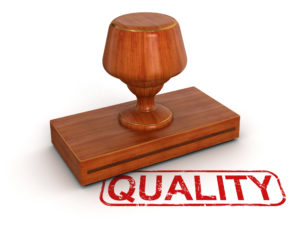 16/09/2019
16/09/2019Minimum quality standards for treatment of WEEE
Dr Brüning Engineering and Umweltbundesamt, the consultancies commissioned by the European Commission to undertake a study into quality standards for the treatment of WEEE, have been engaging with stakeholders in Greece, Germany, the Netherlands and Belgium. Next in line are workshops in Spain, Sweden and Czechia. The study will assist the European Commission in a possible preparation of an Implementing Act laying down minimum quality standards for treatment of WEEE in the EU, or any other policy option, and assist in the preparation of a Delegated Act laying down the criteria for the assessment of equivalent conditions for the treatment of WEEE outside the EU.
The WEEE Forum is strongly of the view that it is absolutely crucial that the consultants, the Member States and the European Commission acknowledge the importance of not cherry-picking requirements from EN 50625, the suite of CENELEC standards covering treatment of WEEE, but to consider EN 50625 as one integral set of standards that ought to be made legally binding. Furthermore:
- Requirements on depollution, monitoring, documentation, calculation of recycling and recovery rates ought to be considered an integral part of the standard, not as requirements that “go beyond”. They are essential tools to ensure uniform auditing, verification and enforcement.
- The development of the CENELEC standards was the result of consensus reached among a wide range of stakeholders on what constitutes state of the art treatment, ensuring alignment with the mandate.
- Standards were written for the use of operators, based on the instructions embedded in M518, the Commission’s mandate, and the EU legal framework. Technical requirements were developed by CENELEC based on EU legislation and are considered specifications of the EU legal texts.
- Ensuring state of the art treatment, embedded in WEEE and waste legislation, requires specifications and clear procedures. Going into detail does not automatically mean that the standards ‘go beyond’ legislation.
- In response to the objection by small scale businesses involved in repair and preparation of reuse of appliances, the WEEELABEX Office, an accredited organisation that qualifies auditors and operators, has agreed to proceed with lower batch tests for companies treating less than 100 tons of WEEE a year. Some authorities are developing simplified audits for small scale companies.
About
The WEEE Forum a.i.s.b.l. is an international association representing 51 producer responsibility organisations across the globe. Together with our members, we are at the forefront of turning the extended producer responsibility principle into an effective electronic waste management policy approach through our combined knowledge of the technical, business and operational aspects of collection, logistics, de-pollution, processing, preparing for reuse and reporting of e-waste. Our mission is to be the world’s foremost e-waste competence centre excelling in the implementation of the circularity principle.
Transparency Register ID 702397445-73.
Copyright 2019 All Rights Reserved
Contact
BluePoint conference and
business centre
Boulevard Auguste Reyerslaan 80
B-1030 Brussels
Belgium
Newsletter
Subscribe to our mailing list to get the updates to your email inbox.